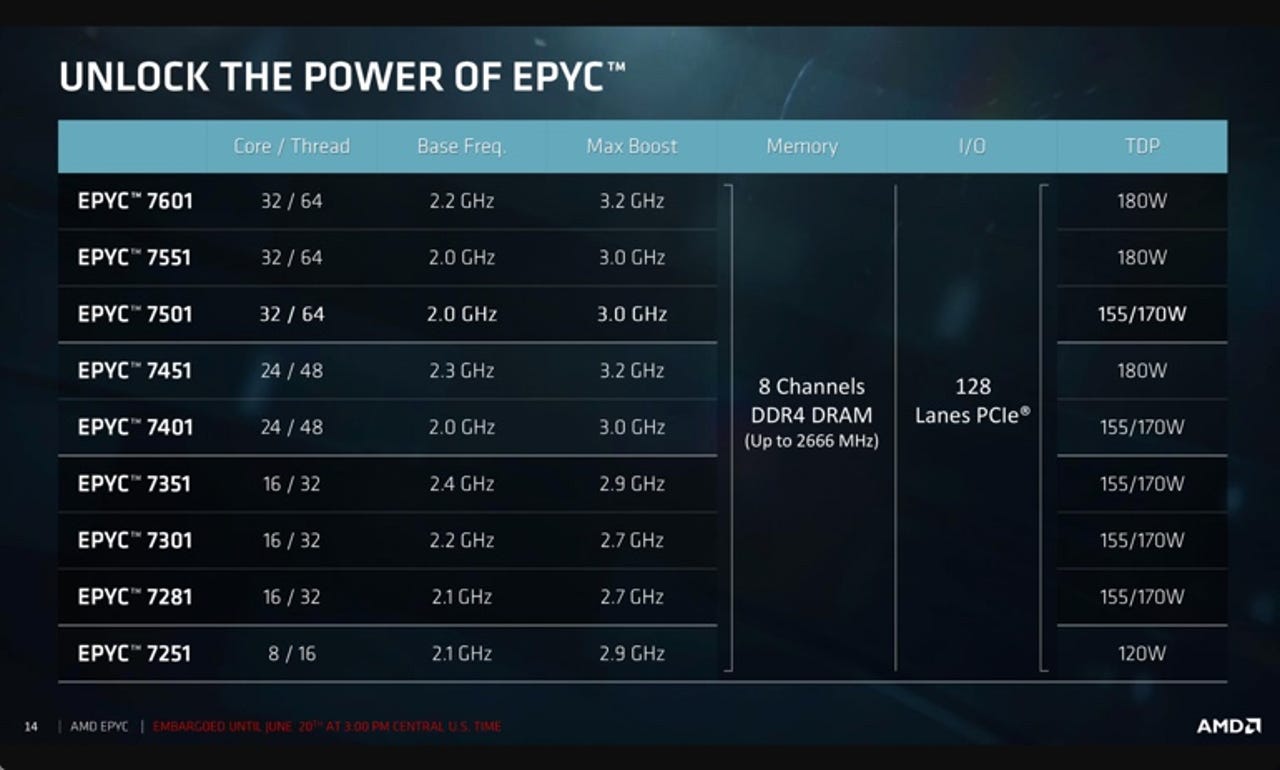AMD's EPYC server chips beat Intel Xeon 2-socket performance at every price point

Today sees AMD unveiled the first generation of EPYC server processors, chips built using the Zen architecture.
And they're going to give Intel a real run for its money.
See also: Five Apple products that are headed for the scrapheap
The processors that have been unveiled range from the 2.1/2.9GHz eight-core, 16-thread chip EPYC 7251, to the 2.2/3.2GHz 32-core, 64-thread behemoth EPYC 7601.

Now there's a lot to EPYC, so much so that I will pull together a deeper dive later this week, but the one standout feature of the new platform is how it can beat a 2-socket Intel Xeon setup in every price point from $400 to $4,000, with the gap between EPYC and Xeon ranging from 23 percent to a whopping 70 percent.
It is, however, important to note that the comparison here is being bate to Intel Broadwell Xeons, and that Skylake-based Xeons are slated to launch later this year.
EPYC's dies are all connected together internally using a technology called Infinity Fabric -- think enhanced HyperTransport - which is used to both connect the chips bidirectionally in a processor at 42GB/s, and between the two sockets at 38GB/s bidirectional (connecting between sockets has more error-checking overhead, hence the lower bandwidth).
Each EPYC processor package can support up to 2TB of DDR4 RAM over eight channels, and has 128 PCIe lanes. 2-socket EPYC also have 128 PCIe lanes -- not 256 -- because each chip uses 64 lanes for the Infinity Fabric interconnect.
Just having AMD re-enter the server market in such a big and meaningful way, and swinging punches again, is good for enterprise, especially the big names in the cloud business. Competition drives down costs, and AMD will be seen as a much-needed counter-pressure to what has become a market dominated by Intel and Nvidia.
AMD's EPYC: Everything you need to know
See also:
- iOS 11 has a big problem, and we're to blame for it
- The iPhone 8 will have twice as much glass for you to break
- iPhone's battery draining fast? Here's how to fix it
- The quickest, simplest way to speed up an old, tired PC
- Apple selling outdated 32-bit iOS apps that will soon stop working
- How to securely erase hard drives (HDDs) and solid state drives (SSDs)
- Can this monster 16-core PC chip challenge Intel's i9? AMD teases ThreadRipper (TechRepublic)